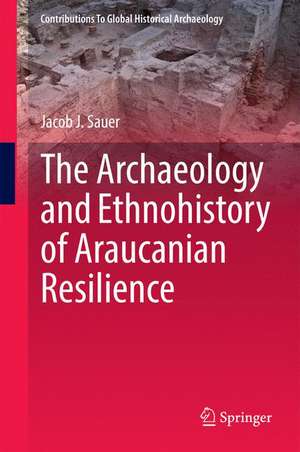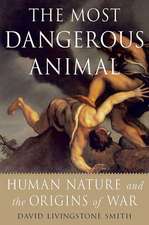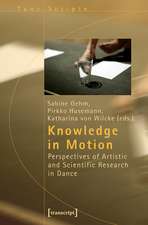The Archaeology and Ethnohistory of Araucanian Resilience: Contributions To Global Historical Archaeology
Autor Jacob J. Saueren Limba Engleză Hardback – 25 sep 2014
| Toate formatele și edițiile | Preț | Express |
|---|---|---|
| Paperback (1) | 383.12 lei 43-57 zile | |
| Springer International Publishing – 10 sep 2016 | 383.12 lei 43-57 zile | |
| Hardback (1) | 390.25 lei 43-57 zile | |
| Springer International Publishing – 25 sep 2014 | 390.25 lei 43-57 zile |
Din seria Contributions To Global Historical Archaeology
- 15%
 Preț: 640.24 lei
Preț: 640.24 lei - 15%
 Preț: 642.36 lei
Preț: 642.36 lei - 15%
 Preț: 643.84 lei
Preț: 643.84 lei -
 Preț: 399.12 lei
Preț: 399.12 lei - 15%
 Preț: 639.90 lei
Preț: 639.90 lei - 15%
 Preț: 644.82 lei
Preț: 644.82 lei - 15%
 Preț: 636.80 lei
Preț: 636.80 lei - 15%
 Preț: 643.84 lei
Preț: 643.84 lei - 18%
 Preț: 949.23 lei
Preț: 949.23 lei - 15%
 Preț: 640.24 lei
Preț: 640.24 lei - 15%
 Preț: 640.06 lei
Preț: 640.06 lei - 15%
 Preț: 641.71 lei
Preț: 641.71 lei - 15%
 Preț: 646.75 lei
Preț: 646.75 lei - 15%
 Preț: 642.03 lei
Preț: 642.03 lei -
 Preț: 390.46 lei
Preț: 390.46 lei -
 Preț: 391.79 lei
Preț: 391.79 lei - 15%
 Preț: 642.51 lei
Preț: 642.51 lei - 15%
 Preț: 647.73 lei
Preț: 647.73 lei -
 Preț: 383.71 lei
Preț: 383.71 lei -
 Preț: 387.96 lei
Preț: 387.96 lei - 15%
 Preț: 643.99 lei
Preț: 643.99 lei - 18%
 Preț: 968.65 lei
Preț: 968.65 lei - 15%
 Preț: 639.08 lei
Preț: 639.08 lei - 15%
 Preț: 636.63 lei
Preț: 636.63 lei - 18%
 Preț: 954.93 lei
Preț: 954.93 lei -
 Preț: 384.86 lei
Preț: 384.86 lei - 15%
 Preț: 641.85 lei
Preț: 641.85 lei - 15%
 Preț: 641.53 lei
Preț: 641.53 lei - 15%
 Preț: 643.99 lei
Preț: 643.99 lei - 15%
 Preț: 645.28 lei
Preț: 645.28 lei - 18%
 Preț: 733.46 lei
Preț: 733.46 lei
Preț: 390.25 lei
Nou
Puncte Express: 585
Preț estimativ în valută:
74.68€ • 78.16$ • 62.15£
74.68€ • 78.16$ • 62.15£
Carte tipărită la comandă
Livrare economică 31 martie-14 aprilie
Preluare comenzi: 021 569.72.76
Specificații
ISBN-13: 9783319092003
ISBN-10: 3319092006
Pagini: 100
Ilustrații: XIII, 193 p. 32 illus., 22 illus. in color.
Dimensiuni: 155 x 235 x 17 mm
Greutate: 0.47 kg
Ediția:2015
Editura: Springer International Publishing
Colecția Springer
Seria Contributions To Global Historical Archaeology
Locul publicării:Cham, Switzerland
ISBN-10: 3319092006
Pagini: 100
Ilustrații: XIII, 193 p. 32 illus., 22 illus. in color.
Dimensiuni: 155 x 235 x 17 mm
Greutate: 0.47 kg
Ediția:2015
Editura: Springer International Publishing
Colecția Springer
Seria Contributions To Global Historical Archaeology
Locul publicării:Cham, Switzerland
Public țintă
ResearchCuprins
Chapter 1: Introduction.- Chapter 2: Resilience Theory and Inevitable Change: Che Identity, Agency, and Strategic Reorganization.- Chapter 3: The Che of South-Central Chile.- Chapter 4: Spain in the Americas.- Chapter 5: Resilience on the Ground: The Archaeology, Ethnohistory, and Ethnography of Santa Sylvia.- Chapter 6: “They Have Risen Up and Rebelled”: Che Resilience, AD 1475-1700.- Chapter 7: Social Shifts and New Regimes: Che Resilience, AD 1700-Present.- Chapter 8: Conclusions and Broader Implications.
Notă biografică
Jacob Sauer received his PhD in Anthropology from Vanderbilt University and BAs in Anthropology and History from Brigham Young University. He has lived in and done anthropological and historical research in Chile since 1997, as well as archaeological investigations in the southwestern and southeastern United States, and in Mexico.
Textul de pe ultima copertă
This volume examines the processes and patterns of Araucanian cultural development and resistance to foreign influences and control through the combined study of historical and ethnographic records complemented by archaeological investigation in south-central Chile. This examination is done through the lens of Resilience Theory, which has the potential to offer an interpretive framework for analyzing Araucanian culture in through time and space. Resilience Theory describes “the capacity of a system to absorb disturbances and reorganize while undergoing change so as to still retain the same function.” The Araucanians incorporated certain Spanish material culture into their own, rejected others, and strategically restructured aspects of their political, economic, social, and ideological institutions in order to remain independent for over 350 years.
Caracteristici
Discusses studies on the Araucanians/Che from the perspective of historical archaeology Provides an analysis that can be applied in cross-cultural comparison with other indigenous groups Combines archaeology, ethnohistory and ethnography to discuss the long term cultural development of the Araucanians/Che Includes supplementary material: sn.pub/extras













